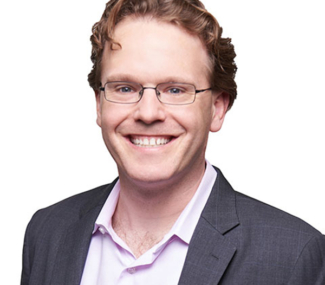Optimism is the Most Potent Tool Your Organization Can Possess

“We may encounter many defeats, but we must not be defeated.”
– Dr. Maya Angelou
In general, the world is in a relatively grim mood. Over cable news airwaves, on social media, in the local coffee shop, at the dinner table – everywhere people gather, there seems to be an undercurrent of pessimism. This sense that the world is worse than before isn’t without reason. There is turmoil in the Middle East and Asia, refugee crises, geopolitical tensions, an economic crisis in South America, and more. But the fact is, things aren’t worse; the world is continuing to improve.
Perhaps it’s because we are so hyperconnected to one another and to news sources across the world that we simply hear and know more. Perhaps it’s because leaders have made pledges and promises that have not come to fruition – and perhaps it’s because we hope. Whatever the reason, reality does not support these feelings of gloom.
Reality is, the world is improving
Consider this. In 2017, American manufacturing picked up pace across virtually every sector, thanks to steady global economic growth, a rise in energy and other commodity prices, and increased business confidence. Since 2012, global wealth rose 6.4% – the fastest increase in recent history. (For those keeping score, the improvement in North America was a stunning 9.9%.)[1] Since the 1960’s, the U.S. poverty rate has decreased continually by more than 4%.[2] In the 21st Century, medical efforts have entirely or almost entirely eradicated a long list of diseases in the including Smallpox and Rinderpest.[3] And cancer rates, which peaked during the 20th Century due to the tobacco epidemic, declined by 25% by 2014 – progress that translates into 2.1 million more dads, moms, husbands, wives, brothers, and sisters alive to celebrate holidays and everydays.
Sometimes, we notice a challenge because it is a contrast to how good things actually are. Life / work / relationships come with challenges and setbacks. (I was reminded at 3:00 a.m. when my wide-awake, 20-month daughter decided she didn’t want to sleep through the night, even though we’d had weeks of blissful, uninterrupted rest.) Sometimes, a setback feels larger because everything else has been moving along so smoothly. We become accustomed to the simplicity.
Progress on the national and global levels
The Council on Foreign Relations recently stated, “By most objective measures of human well-being, the past three decades have been the best in history. More and more people in more and more places are enjoying better lives than ever before.”[4] They go on to compare poverty and prosperity, culture, and markers of progress. In doing so, one of the most significant challenges they highlight is perception. It’s this sense of fundamental doom that keeps individuals, organizations, societies, and nations from noticing and striving to contribute to improvements.
The article raises a critical point. Progress is not linear. For those who expect it will be, frustration and pessimism are going to be frequent stumbling blocks.
The day after the election last year, President Obama similarly observed, “The path that this country has taken has never been a straight line. We zig and we zag, and sometimes we move in ways that some people think is forward and others think is moving back. And that’s OK.” Obama saw America as a work in progress – not something that once was great and should be great again. Rather, as something that was on a trajectory of improvement not necessarily shaped as a straight line.
He looked at history and his administration’s efforts and accomplishment (and failures). Moreover, he expressed a fundamental philosophy – progress is born from optimism.
The opposite of optimism isn’t pessimism – it’s cynicism
Henry Ford once said, “Whether you think you can or whether you think you can’t, you’re right.” Optimism is not a rose-colored view of the world. (That may be the fastest path to cynicism.) An optimist can go out on a sunny day carrying an umbrella. That’s not negativity; it’s a realistic approach that recognizes rain may fall and takes steps to prepare. A pessimist will expect rain and complain about the heat if the sun shines. A cynic may not leave the house.
Optimism is acknowledging that something is going to be hard and believing we can do it anyway. It’s optimists who continue to do some of the most laborious work in the world in the face of slow progress and life-threatening hurdles. It’s the NGOs that continue to go into places like Yemen to provide medical care and subsistence, even though the area is facing the ‘worst humanitarian crisis since WWII.’ [5] Or it’s nonprofits working on the ground in violent, underperforming, under-funded school districts. Groups like these continue to strive because they have an objective that is bigger than the challenges along the way. They know (perhaps better than most) that setbacks are as real as the air we breathe and that reaching an objective requires a willingness to iterate.
Optimism in the organization
I have written in the past about factors necessary for organizational transformation. I wasn’t looking at financial frameworks or sophisticated technology solutions (though these hard elements are essential). I focused on leadership, inclusivity, passion, courage, creativity, patience – and optimism. In particular, if an organization lacks optimism, they are doomed to fail.
Too many organizations set a goal and launch a transformation, only to halt their progress at the first setback. They lose courage and they lose resolve. They lose the belief that they can transform. Rather than zigging and zagging, they become cynical and stop.
Almost 30 years ago, John Kotter outlined the critical aspects of transformation. One of them was having “quick wins.” The inverse is true – organizations must frame setbacks in the greater context of the change objective to know for sure whether it’s a setback or merely part of the growth process.
No organization (culture, nation, individual) can grow without setbacks. They cannot become healthy without strong guidance. But that cannot transform without a firm belief that it is possible. Optimism is critical to resilience. When a client comes to Toffler Associates saying, “I want to transform my organization,” I know that desire is rooted in the belief that change is possible and that we can help.
Over the years, our greatest client relationships have been with leaders who believed they could change their organization for the better. They may have been skeptical about how they would reach their target outcomes – but skepticism is healthy. It prompts good questions. They may have needed our guidance to work around setbacks. But they believe in an outcome, are realistic about the challenges that litter their path, and are willing to ask for help. And perhaps most importantly, they disseminate all these things through the organization, fundamentally turning their optimism into a cultural rallying cry.
At Toffler Associates we are optimistic about organizational transformation because we understand change. Through our experience with clients and our own transformation over the years, we can say with confidence that perseverance takes a belief that reaching an outcome is possible, even if it takes more time and more work than initially expected. That is optimism. And that may be the most potent tool that commercial, military, government – and tired parents – possess.
It’s time to remember that skepticism is healthy, cynicism is a dead end, and optimism is the key that unlocks progress.
{{cta(‘befa9ff3-80a5-4a6c-b483-9daadb37b099′,’justifycenter’)}}
[1] https://www.ft.com/content/830b3910-0b7a-3c8b-8d22-25e22e59fc81
[2] https://aspe.hhs.gov/system/files/pdf/154286/50YearTrends.pdf
[3] https://ourworldindata.org/eradication-of-diseases/
[4] https://www.foreignaffairs.com/articles/2016-04-18/fusion-civilizations
[5] http://www.cbc.ca/radio/day6/episode-353-hurricane-harvey-ethereum-vs-bitcoin-techno-tourism-in-detroit-the-outsiders-at-50-and-more-1.4267404/yemen-is-now-home-to-the-world-s-worst-humanitarian-crisis-1.4267418
- Categories
- Leadership
- Strategic Planning


 About the Authors
About the Authors